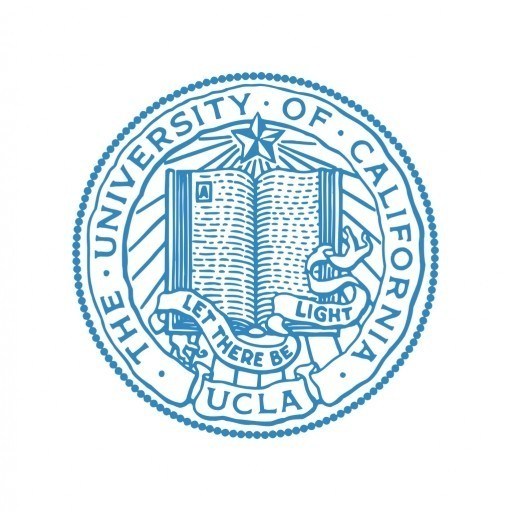Photos of university / #ucla
The word philosopher, translated from Greek, means lover of wisdom. The term has come to mean someone who seeks knowledge, enlightenment, and truth. The undergraduate program in philosophy is not directed at career objectives (although it is traditionally good preparation for law, theology, and graduate work in philosophy). Philosophy is taught to undergraduates primarily as a contribution to their liberal education. All of the lower and most of the upper division course offerings should be of interest and useful to students who are reflective about their beliefs or who wish to become so. It also provides the occasion to ponder the foundations of almost any other subject to which they are exposed -- whether history, religion, government, law, or science.
Preparation For The Major (4 Courses)
- Philosophy 7 - Introduction to Philosophy of Mind
- or 21 - Skepticism and Rationality
- Philosophy 22 - Introduction to Ethical Theory
- Philosophy 31 - Logic, First Course
- One additional lower division Philosophy course
Major (13 Courses, 52 Units)
Philosophy 100A, 100B, and 100C
Seven courses, two from three of the four groups and one from the remaining group:
- Group I--History (Courses M101A-C119; 201-220)
- Group II--Logic, Semantics, and Philosophy of Science (Courses 124-137; 221A-233)
- Group III--Ethics and Value Theory (Courses 150-166; 241-258)
- Group IV--Metaphysics/Epistemology (Courses 170-M187; 271-289)
Three additional upper division or graduate level Philosophy courses
- Contract courses (Philosophy 199) can be applied toward the elective portion of the major only (not the group component)--the Department will accept a maximum of 8 units of a 199 on the major.
- No course on the prep for the major nor the major itself can be taken P/NP--all major courses must be taken for a letter grade.
- Students can declare the major upon completion of the four preparatory courses listed above with a GPA of 2.0 or higher. Students must also hold a 2.0 GPA or higher overall.
Requirements
- To be considered for admission to UCLA, international students must have completed secondary school with a superior average in academic subjects and have earned a certificate of completion which enables the student to be admitted to a university in the home country.
- All freshman applicants are expected to take the following tests: The ACT Assessment plus the ACT Writing Test. - or - The SAT Reasoning Test. Note: you must complete the essay portion of the SAT. We will not accept your scores if you opt not to write the essay.
- UCLA requires records from all secondary schools attended, showing subjects taken and grades received as well as any national or government certificates earned. Documents of all college or university coursework must also be sent in the original language, along with English translations. Do not send these documents now. If you apply and are admitted to UCLA, your admission packet will contain instructions on how to send your original records to us.
- Test of English as a Foreign Language (TOEFL)
- A competitive score is above 100 (with sub-scores above 22).
- International English Language Testing System (IELTS)
- A competitive score is 7 or higher.
Scholarships
UCLA does not award scholarships or financial aid to undergraduate students who are not citizens or permanent residents of the United States. International students must prove that they have sufficient funds available to them to pay for their educational and living expenses. For example, students admitted to Fall Quarter 2016 will need a minimum of about $60,000 (with an additional $5,000 recommended for additional personal expenses, contingencies and summer expenses). This minimum amount usually grows each year.
UCLA also requires that all international students on non-immigrant visas have adequate medical insurance during all periods of enrollment. More information about these requirements will be sent to students when they are admitted.
The University of California offers a comprehensive Philosophy program designed to explore fundamental questions about existence, knowledge, ethics, and reasoning. The curriculum provides students with a deep understanding of both historical and contemporary philosophical thought, emphasizing critical thinking, analytical skills, and clear communication. Students may engage with various branches of philosophy, including metaphysics, epistemology, ethics, political philosophy, and philosophy of mind, among others. The program aims to develop students’ ability to analyze complex texts, construct coherent arguments, and apply philosophical concepts to real-world issues. University of California's Philosophy program often encourages interdisciplinary learning, allowing students to connect philosophical ideas with fields such as law, science, literature, and the arts. Faculty members are distinguished scholars dedicated to fostering a rigorous academic environment and facilitating student research. Students have access to numerous seminars, lectures, and discussion groups that enhance their understanding and engagement with philosophical debates. Additionally, the university supports undergraduate and graduate research, offering opportunities for thesis work, publications, and conference participation. Graduates of the Philosophy program find careers in academia, education, public policy, law, journalism, and more, benefiting from the analytical and ethical reasoning skills acquired during their studies. The program also emphasizes the development of writing and presentation skills, essential for professional success. Overall, the Philosophy program at the University of California is designed to challenge students intellectually and prepare them for thoughtful and impactful careers.


